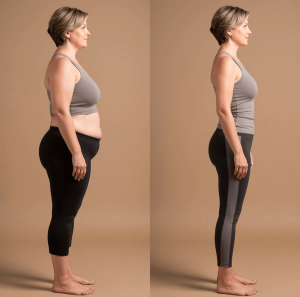When most people talk about weight loss, they often focus on the physical aspects—calories burned, meals tracked, clothes that fit better, or numbers on a scale. While these visible changes are worth celebrating, what often remains overlooked is the emotional journey that comes with transforming one’s body. Behind every goal achieved is a deeply personal story filled with self-doubt, breakthroughs, hope, and unexpected feelings. The emotional side of a weight loss transformation is just as important as the physical one—and understanding it can bring a sense of compassion, patience, and lasting strength.
Starting with Feelings, Not Numbers
Before the first workout or nutrition change, there’s usually a deeper reason why someone begins a transformation journey. It might be a quiet longing to feel more confident, a need to break free from old habits, or even a moment of awakening after a difficult health checkup. These emotional sparks, however subtle, mark the beginning of a very personal transformation. It’s not just about looking different; it’s about feeling like you can live fully and freely again.
For many, starting can come with a mix of fear and hope. Fear of failing again, fear of judgment, or fear of discomfort. But also hope—hope that this time might be different. These emotions often swirl together, leading to hesitation or doubt. Yet the courage to begin, even with shaky steps, sets everything in motion.
The Inner Struggles Along the Way
As the journey progresses, emotions can rise unexpectedly. Even when you’re following a plan, there may be days when progress feels slow or motivation disappears. It’s common to feel discouraged when old habits resurface or when the number on the scale doesn’t reflect your efforts. These moments test patience and self-worth.
What many people don’t realize is how tied food and movement are to emotions. A stressful day might trigger cravings. Social situations might stir anxiety about being judged for eating differently. There might even be grief involved—grief for old routines or for the time spent not feeling your best. These aren’t setbacks; they’re part of the healing process.
As emotional patterns become clearer, a powerful shift happens. Instead of judging yourself for feeling frustrated or overwhelmed, you learn to respond with care. This self-awareness is one of the most profound parts of the transformation—it’s where you begin to rebuild trust with yourself.
Finding Joy in Small Wins
There’s a quiet kind of joy that comes when a person begins to realize that they are capable of change. It doesn’t come from reaching the final goal—it starts long before that. It might show up as a proud moment walking past a snack you would have once grabbed. Or a newfound ability to climb stairs without feeling out of breath. Or simply waking up with more energy.
These emotional victories matter. They remind you that your efforts are working. That you’re not stuck. That you are becoming someone who shows up for themselves, again and again.
These small wins also build confidence. With each success, the fear of failing loses its grip. You start to believe in your ability to keep going. And more importantly, you begin to enjoy the process—not just the outcome.
The Role of Self-Talk and Compassion
Throughout a transformation, the way you speak to yourself matters more than any meal plan. Many people begin their journeys with critical inner voices that say, “You’ll never stick with it,” or “You’re not good enough.” These voices often come from past experiences or societal pressures.
As progress unfolds, emotional growth includes learning how to speak kindly to yourself, especially on hard days. Saying, “I’m proud of the effort I made today,” even when things aren’t perfect, creates a more stable foundation for lasting change.
Compassion doesn’t mean lowering your standards. It means creating a space where growth can happen without shame. It means allowing room for setbacks without letting them define you. And it means giving yourself the kind of encouragement you might offer a close friend.
When the Outside Doesn’t Match the Inside
One of the more surprising parts of a transformation journey is realizing that physical changes don’t always bring instant emotional peace. Someone might reach a milestone—such as a lower weight or fitting into a certain size—and still feel unsure, anxious, or even dissatisfied.
This happens because confidence and self-worth aren’t automatically tied to appearance. True transformation includes doing the inner work of understanding your value beyond what you look like. For some, this means letting go of perfectionism. For others, it means untangling years of emotional eating or body shame. This deeper healing takes time, but it’s often where the most lasting growth occurs.
Support, Encouragement, and Connection
Another key emotional piece of a weight loss journey is the importance of support. Sharing your journey with others—whether through conversations, communities, or even a trusted friend—can lift you through the hard days. Knowing you’re not alone brings comfort and motivation.
Encouragement from others also helps shift














